Our National Assembly was born in the flames of the revolutionary struggle, is the achievement, the noble symbol of national independence, national unity - the place where the will, belief and strength of great solidarity of our people and nation converge, spread. The reporter had an interview with Associate Professor, Dr. Dang Minh Tuan, Head of the Faculty of Constitutional Law and Administrative Law, University of Law - Vietnam National University , Hanoi on this issue.
Reporter (PV): Dear Associate Professor, Dr. Dang Minh Tuan, could you please tell us a little about the formation and development of the National Assembly in the world and in our country?
Assoc. Prof., Dr. Dang Minh Tuan: Since ancient times, there have been agencies elected by the people to represent them in solving community and social issues. However, at that time, those who were allowed to vote and those who were elected had to be people with property or people who held weapons. But in the sense of parliament as it is today, it only existed since capitalism, or more specifically since the bourgeois revolution. In the struggle against the feudal absolutist state, the bourgeoisie achieved a limitation of the power of the monarchy by establishing an agency called parliament that existed alongside the king or established a republican regime that recognized the rights of citizens.
During this period, the strengthening of parliamentary power became a democratic demand of all British people. The demands for strengthening parliamentary power were also measures (requests) to limit the outdated feudal power. At this time, the question "Parliament has the right to do everything, except turn men into women" became a British proverb. However, the position and role of parliament were challenged and declined during the period of state chaos of imperialism. After this period, along with the reform of capitalism, parliament and state power institutions were reformed based on the rule of law principle in the organization and implementation of state power to ensure that parliament fully performs its representative, legislative and supervisory functions. In the socialist regime, parliament has a special position as the highest representative body of the people, the highest state power body.
In Vietnam, the ideal of civil rights was selected by President Ho Chi Minh from the values that humanity achieved in the struggle against feudalism, monarchy and despotism. At the first meeting of the Provisional Government (September 3, 1945), one of the urgent tasks that Ho Chi Minh suggested the Government focus on solving was the issue of National Assembly elections. He said: “We must have a democratic constitution. I propose that the Government organize a general election with universal suffrage as soon as possible.”
In his view, after gaining power through a general uprising, the best legal form to express the view that power belongs to the people can only be through a Constitution promulgated by the National Assembly. A government that wants to have enough legal status to run the country and participate in international legal relations can only be a government of the people elected by the National Assembly. It can be said that the establishment of the first National Assembly of the Democratic Republic of Vietnam is the inevitable result of Ho Chi Minh's thought on the issue of power belonging to the people. And it is also the creative application of Ho Chi Minh's Marxist-Leninist viewpoint on representative bodies in the specific conditions of the Vietnamese revolution.
PV: Our National Assembly is the highest representative body of the people, the highest state power body. How is that different from national assemblies in other state regimes?
Associate Professor, Dr. Dang Minh Tuan: Most contemporary state regimes are organized based on the principle of separation of powers, ensuring that legislative, executive and judicial powers are divided and controlled by each other. Different levels of separation of powers lead to different positions of legislative, executive and judicial bodies, but the trend is to ensure the balance of power between these bodies, or in other words, the parliament is not considered the highest state power body, but the power of the parliament is defined as a representative, legislative and supervisory body. The parliament, like any institution, must be subject to the power control of constitutional protection agencies. Today, countries have been and are carrying out constitutional reforms to enhance the position and role of parliament in political and democratic systems. Parliament is considered a symbol of democracy, exercising legislative power - one of the most important powers of the state, deciding important issues of the country and supervising the executive.
In the Socialist Republic of Vietnam, all state power belongs to the people. The people exercise state power through direct democracy and representative democracy through the National Assembly, People's Councils and other state agencies, of which the National Assembly is the highest and most concentrated body expressing the will of the people. The legal position of the National Assembly first of all shows that the National Assembly is the highest representative body of the people, the highest state power body. In terms of democracy, no state agency is more representative than the National Assembly, while in terms of state power, no state agency has more power than the National Assembly.
The supreme position of the National Assembly represents a fundamental characteristic of the organization of the Socialist Republic of Vietnam. The National Assembly has such a special legal position because the National Assembly is the only State agency directly elected by voters nationwide. The election of National Assembly deputies is the result of the unified choice of the people nationwide. The National Assembly includes representatives of all classes of people. The National Assembly is the clearest manifestation of the great national unity bloc in our country, representing the wisdom of the country.
In the tradition of organizing the Socialist State, the National Assembly is determined to have a "preeminent" position compared to other state agencies. However, in accordance with the Renovation policy, the integration and globalization process, the National Assembly is the highest representative body of the people, the highest state power agency, but there must be a clear division of labor and responsibilities between agencies in the implementation of legislative, executive and judicial powers. The need to supervise the National Assembly has also begun to arise.
PV: How should we understand the National Assembly, the body representing the people and deciding on the most important matters of the country, sir?
Associate Professor, Dr. Dang Minh Tuan: The National Assembly is the only body elected by the people nationwide, so the National Assembly is the highest representative body of the people. Not only that, the National Assembly is also identified as the highest state power body in the mechanism of division, coordination and control of state power. Not only is it granted legislative power, the National Assembly also has the right to make the Constitution - the right to make the Constitution, amend the Constitution and decide on important issues of the country - the right to decide on policies and issues of national and people's livelihood. In the mechanism of controlling state power, the National Assembly has a special position in the role of supreme supervision of all activities of the State.
Despite such a special constitutional position, the National Assembly is not an omnipotent body, it cannot do everything but only decides the most important issues. State power is divided, coordinated and controlled among agencies in the implementation of legislative, executive and judicial powers. Determining the National Assembly as the body that decides the most important issues of the country has great significance in theory and practice. Firstly, the National Assembly should not get carried away with debates and resolutions of less important issues, trivializing the role of the representative body. Secondly, the National Assembly cannot be an overly centralized body, but on the contrary, it must have division of labor and be subject to supervision.
PV: In your opinion, since its establishment, how has our National Assembly played its role?
Associate Professor, Dr. Dang Minh Tuan: It can be seen that since its establishment, our National Assembly has fulfilled its role and mission towards the country and the people. In recent years, the activities of the National Assembly have been increasingly innovative, increasingly demonstrating democracy and increasingly improving efficiency. All major issues in all fields, from politics, economics, society, culture, education, national defense, security, foreign affairs, etc. of the country have been discussed and decided by the National Assembly. With the nature of our State as a socialist rule-of-law State, therefore, all policies and guidelines of the Party that want to be put into practice and seriously implemented by the entire population must be institutionalized by the legal system.
The legislative work of the National Assembly is carried out according to very strict procedures, ensuring democracy, publicity, transparency, and suitability with the actual situation of the country. The National Assembly operates under the parliamentary system and makes decisions by majority vote. Draft laws to be submitted to the National Assembly for comments, consideration, and approval must be submitted by the drafting agency to the Government for comments, then the Government submits them to the National Assembly Standing Committee for comments before submitting them to the National Assembly. If they fail to pass, they must continue to be revised. When a draft law is submitted to the National Assembly, along with the Government's submission, it must be accompanied by an examination report from a National Assembly agency.
The National Assembly will then give its opinion in a democratic and public spirit, following the process of discussion in groups, then in the hall, and will be transparently reflected by the press and media. To speed up the law-making process and meet practical requirements, a draft law is usually commented on and passed by the National Assembly in two sessions. However, for important and sensitive draft laws, the National Assembly can consider and give its opinion in three sessions. There are draft laws that must be revised many times before being completed and passed by the National Assembly. This shows that the legislative role of the National Assembly is very clear, and the opinions of National Assembly deputies are very important.
The democratic and open atmosphere of the National Assembly and the role of National Assembly deputies are further demonstrated in the question and answer sessions. National Assembly deputies have the right to question the President, the Chairman of the National Assembly, the Prime Minister, ministers and other members of the Government, the Chief Justice of the Supreme People's Court, the Chief Prosecutor of the Supreme People's Procuracy, and the State Auditor General. The person being questioned must answer before the National Assembly at the session or at the meeting of the National Assembly Standing Committee between two National Assembly sessions; if necessary, the National Assembly and the National Assembly Standing Committee allow written answers.
The contents of the discussion on socio-economic issues and especially the question-and-answer sessions in the National Assembly sessions are increasingly exciting, being broadcast live on radio and television, attracting the attention, evaluation and comments of voters and people nationwide. The debate is encouraged to clarify the question-and-answer issues, especially the limitations, responsibilities of officials and clearly state solutions. After the question-and-answer session, the National Assembly will issue a resolution on this content, thereby providing a basis for monitoring the issues raised and supervising the promises of those who answer the questions. The National Assembly's increased questioning activities make those holding positions elected and approved by the National Assembly always strive to clearly demonstrate their responsibilities, and cannot be negligent.
The important role of the National Assembly is demonstrated by the fact that important programs and plans are the "backbone" of State operations such as the socio-economic development plan and the annual state budget estimate, public investment plans, etc., which must be approved by the National Assembly before they can be implemented. Along with the resolute fight against corruption and negativity in the State administrative apparatus in general, the National Assembly is also very resolute against negativity within its ranks. The exemplary handling of violations of the law by National Assembly deputies shows that the effectiveness of the National Assembly comes not only from the role and functions prescribed by the Constitution and laws, but also from the qualities, qualifications and operational capacity of National Assembly deputies representing the people.
PV: Thank you very much!
PEOPLE'S ARMY NEWSPAPER REPORTERS GROUP
Source


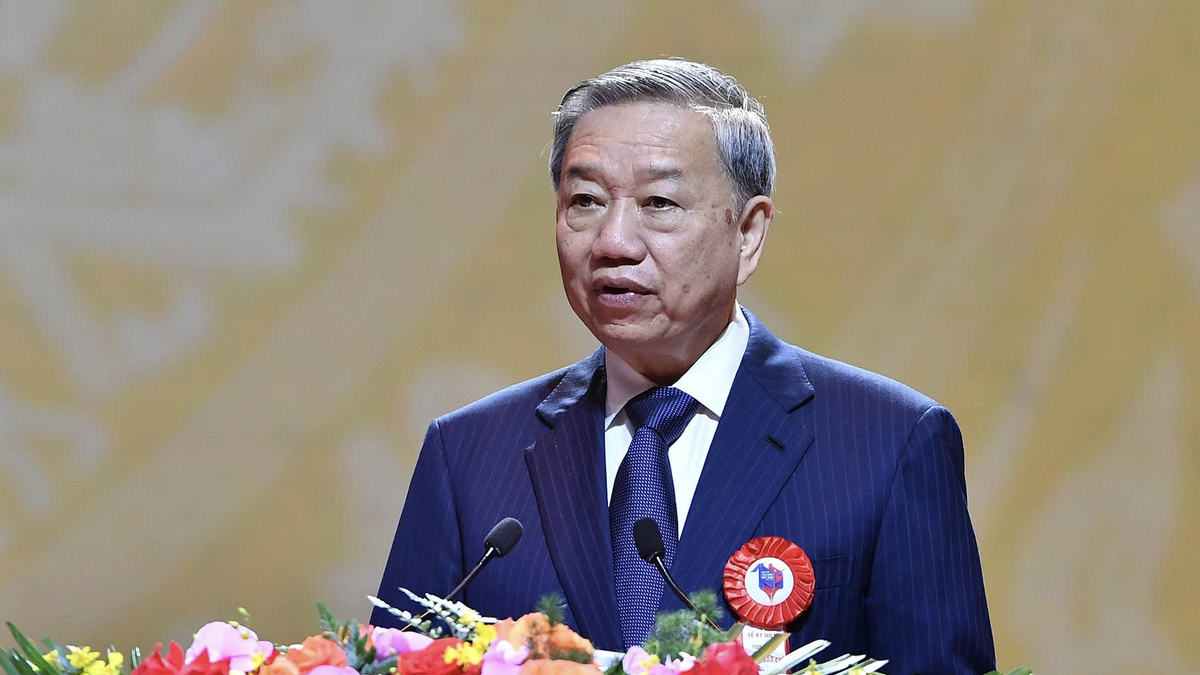







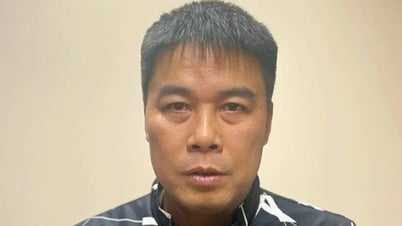

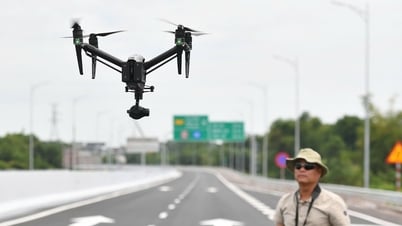

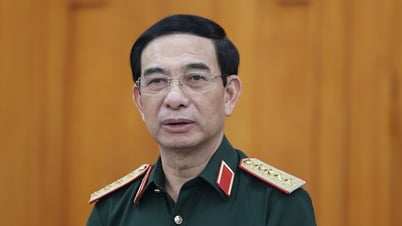





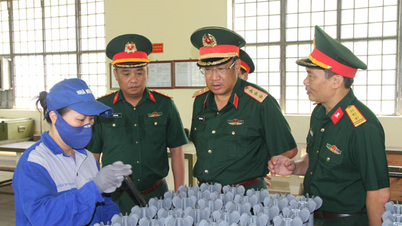
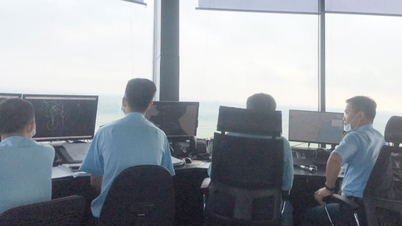
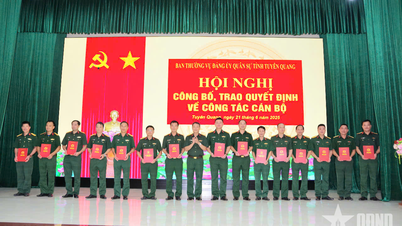


![[Photo] Central Propaganda and Mass Mobilization Department meets with exemplary journalists](https://vphoto.vietnam.vn/thumb/1200x675/vietnam/resource/IMAGE/2025/6/21/9509840458074c03a5831541450d39f8)





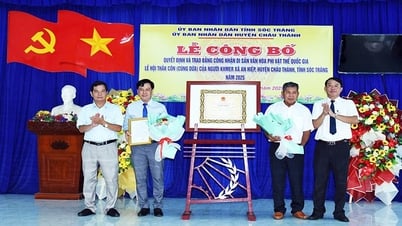



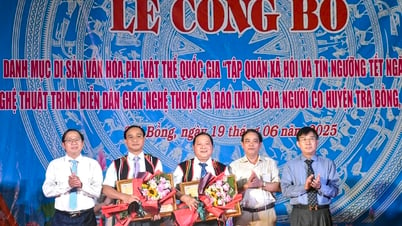





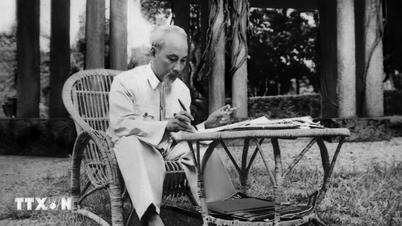

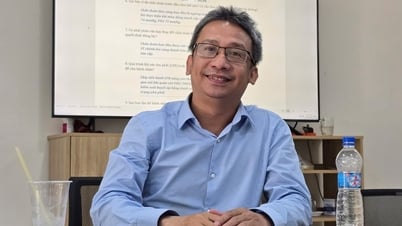


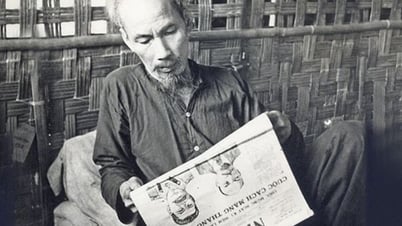





![[Maritime News] Wan Hai Lines invests $150 million to buy 48,000 containers](https://vphoto.vietnam.vn/thumb/402x226/vietnam/resource/IMAGE/2025/6/20/c945a62aff624b4bb5c25e67e9bcc1cb)




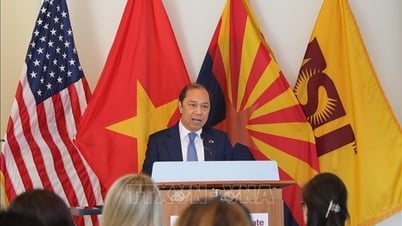



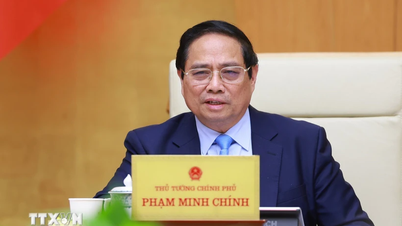


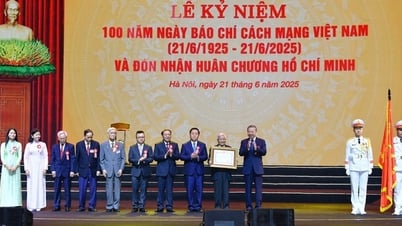




























Comment (0)